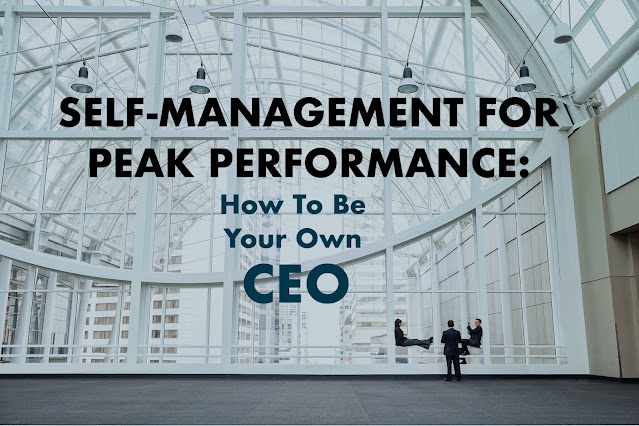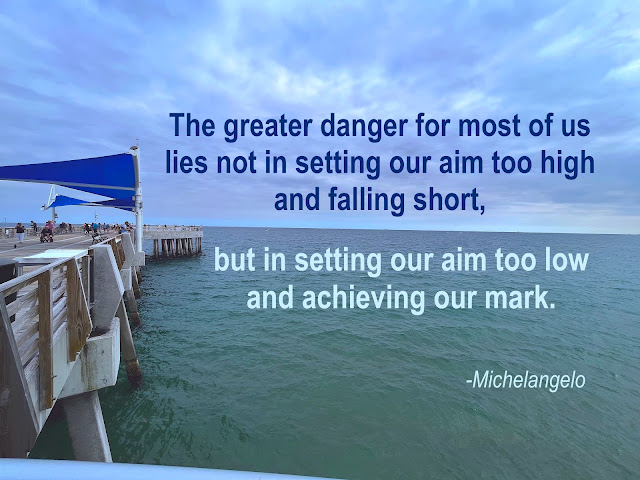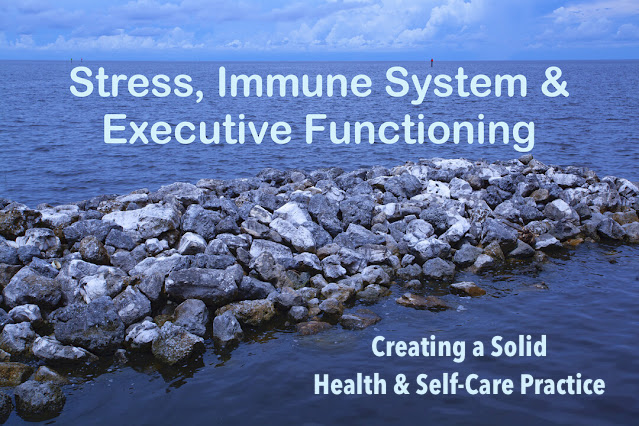Chief Executive Officer
Highest ranking executive in a company.
Primary Duties: Oversee & coordinate overall operations, make major decisions, plan, communicate, and problem solve.
Hmmm?
Sounds like the same responsibilities issued to our brain's frontal lobes.
The skills required for achieving success are interconnected, complex and coordinated. Collectively, they are referred to as executive functioning. They are our control or supervisory center, located within the frontal and prefrontal lobes of our brain, representing a fairly large area consuming approximately 1/3 of the brain's cortical geography.
These crucial skills incrementally evolve as we navigate through the developmental stages, reaching a full appreciation of their maturity in our mid 20s. It is this structure within the brain that plays the most critical role in the success or failure of our human endeavors.
The same skills that define a great leader are the ones involved in
self-management or self-regulation.
These critical skills include, but are certainly not limited to, the following:
Strengthening one aspect of executive functioning will strengthen other aspects, as this system works together. That's the good news. Here's the bad: a weakness in one will result in a dysregulated system, which could de-rail your overall goals. For example, one weak player on a sports team can cost the team the game (and eventually the championship).
What can we do with a weakness? We either find another executive functioning skill that can potentially overshadow the weak one(s) or we strengthen the weak executive functioning skill(s) via strategies and helpful tools. This is where neuroscience steps in, by way of neuroplasticity.
NEUROPLASTICITY
THE BRAIN'S ABILITY TO CHANGE THROUGH GROWTH & ORGANIZATION
One of the greatest myths that many believe is that "people don't change." If this were true, then there would be no need for personal development programs, productivity seminars, psychotherapy, life or executive coaching, leadership development courses, or any other self-motivating or self-enhancing activity, via books, journals, audiotapes, and online courses. Since self-improvement is a multi-billion dollar industry, it stands to reason that this cliche is simply untrue and needs to be put to rest.
People do change.
Experiences change us.
New pathways lead to new connections!
In general, self-improvement goals fall into one of the following 5 categories:
1. Becoming more fit and healthy and/or losing weight 2. Finding one's passion and/or purpose
3. Acquiring skills for professional and/or personal success
4. Improving interpersonal relationships
5. Improving confidence & courage, while decreasing fear
Neuroscience challenged the long held assumption that our brain, our operating system, is rigid and that once we're past a certain age, few changes take place. Neuroplasticity, or the brain's ability to continue to be shaped, molded, or altered, provides new hope and is one of the most exciting and wide-reaching discoveries in modern day science. We now know that the brain, with its approximately 86 billion neurons communicating with one another through the transmission of electric nerve impulses, is more malleable than previously thought. Our neurons have an enormous number of computational capabilities with various capacities, and the experiences we have will determine which of those capacities will be utilized and strengthened.
In essence, our brain is able to change, create new neural pathways, and re-organize itself, in response to life experiences. Functioning at our highest level requires learning and implementing the strategies that will elevate our game.
INVEST IN YOURSELF
You are your greatest investment. Where you would like to be in 6 months, 1 year, or 5 years will largely depend on what you think and what you do TODAY! Creating a future you requires being self-curious, resulting in a self-knowing. Self-awareness is key to accelerated growth. Individuals high in emotional intelligence dedicate themselves to being a "student" of life, and a student of self. They possess the skills necessary to lead both themselves and others. The good news is that emotional intelligence can be strengthened by asking good, deep questions, carving out time for introspection, and being open to receiving feedback. PRIORITIZE HEALTH
Anything you do to keep yourself healthy and energized is self-care and therein lies the path to stress management, productivity, and a soul-enriching journey. While few would disagree the importance of self-care, it is often not prioritized in our lives. When stressed, self-care is unfortunately the first to go.
SELF-CARE = SELF-RESPECT
Self-care encourages you to have and maintain a healthy relationship with yourself so that you can extend your good energy to others. You cannot adequately and efficiently care for and/or give to others when fatigued, depleted, or overwhelmed. One of the most self-less commitments you can make is to commit, unapologetically, to your own well-being and self-care.
FOCUS
Focus, an important mental asset, is directed attention. It's your primary pathway to entering into your flow state or getting into the zone. When your attention is in the present moment and on task, you experience optimal cognitive functioning and peak performance. Upon exiting this heightened focused state, there is a deep sense of fulfillment.
In our ever growing complex and distracted world, our ability to focus is diminishing dramatically, and this is affecting motivation, learning and retention of material, deep thinking, and problem solving. Bombarded by interruptions throughout our day from notifications, pings, and vibrations emanating from our digital devices, we barely can settle down and approach a task long enough before becoming interrupted. This constant shift in attention is creating executive functioning fatigue, which in turn compromises our decision making abilities. In order to accomplish great things, discerning between productivity and busy-ness is crucial. Productivity requires clarity, while busy-ness does not. Busy-ness generally has no end goal in sight.
Focused attention is the brain's ability to actively focus on a target stimulus (or one thing) without being distracted by other stimuli.
Often, our go-to strategy for enhancing our focus is to tell ourselves to focus, with the illusion that issuing oneself a command to pay attention or concentrate will somehow do the trick. Unless the activity is incredibly interesting to you, your ability to apply focused attention works similarly to your muscles. To grow them, you must use them.
High performers in their respective fields, including talented CEOs, have arduously worked to hone their power of focused attention, by intentionally harnessing a wandering mind. They excelled because they were able to push through the tedious and repetitive basic drills to achieve mastery, and ultimately FOCUS! Manage your distractions and you will manage your focus.
GET CREATIVE
Creativity is self-expression in motion. When stressed, we typically do not gravitate toward productive solutions. Rather than to engage, stepping forth into creativity, we often disengage, stepping backward into over-eating, drinking, thinking, and any other over that does not support the life we're desiring. Engaging in a creative hobby relieves stress. A reduction in stress is correlated with an increase in executive processes. It also increases creativity in other areas of our life by strengthening neuronal activities and pathways innervated during the creative process. Here are just a few examples of creative activities:
- drawing/painting
- coloring/doodling
- interior and exterior designing
- solving/assembling puzzles (word/jigsaw)
- creative writing
- journaling
- knitting/crocheting
- cooking/baking
- playing a musical instrument/singing/song-writing
- scrapbooking
- dancing
SET CLEAR GOALS & CHALLENGE YOURSELF
Setting goals helps motivate and move us forward toward success. Goal setting helps us organize our time, plan our day, and galvanize our resources to maximize our lives for peak performance. Goal setting provides a short- and long-term vision for what we want, and sometimes more importantly, for what we do NOT want!
A clear set of goals will allow us to have a clear set of boundaries, both with ourselves and with others.
The 5 Steps to Goal Setting
Step 1: BRAINSTORM
Carve out one hour and brainstorm everything you would like to achieve, have, create, learn, etc. In essence, freely associate your dreams and aspirations (without editing), and capture each and every one in writing. This is not the time to judge whether or not the attainment of these goals is realistic or reasonable. That will come later, in the SELECT & PRIORITIZE step. For now, just freely jot down and capture. Date and keep this list.
Step 2: SELECT & PRIORITIZE
Of the items you listed, carefully and mindfully choose the ones you wish to organize into a plan. Ask yourself WHY you have chosen these. Your WHY is important (as you will see in Step 3). Your WHY is what you will return to when, during the process, you lose motivation, inspiration, and/or determination. Review your list and place your goals in categories of short- and long-range. Assign a goal-attainment date. Here are some examples:
- Earn my college degree by May, 2023
- Have $10,000 in savings by October, 2023
- Run 2 miles by March, 2023
Step 3: ESTABLISH YOUR WHY
A goal becomes more powerful when we can assign a "why" to it. Why do I want to achieve this goal? Add other questions such as: How will my life change if I successfully fulfill this goal? and What do I hope to gain by attaining this goal? will help provide increased clarity and motivation.
Clarity & Motivation enhance focus!
Step 4: RE-VISIT DAILY
Each day, visit and review your list. Create a vision board. As you move through your day, mindfully ask yourself if your actions are supporting these goals. And should it become too challenging and you feel like quitting, remind yourself why you established this goal in the first place, and remember: IF IT DOESN'T CHALLENGE YOU,
IT DOESN'T CHANGE YOU.
And inasmuch as I love the above saying, I also strongly endorse the concept of comfort zone expansion. Change and growth are not necessarily reserved to stepping out of the comfort zone. They can occur in more comfortable and smaller steps.
Step 5: SCHEDULE TIME-INs
You can't be "ON" all the time. Life is a balance. In our busy worlds, where multi-tasking has become synonymous with efficiency and productivity, we find ourselves buried under the weighted pressure of a never-ending To-Do list and time constraints that create a dysregulated and unbalanced life, and potentially health hazards.
Presence is a gift. When we live our lives in mindful awareness of the present moment, always bringing our gratitude and best energy, we enhance our well-being. Success is therefore inevitable. Each day, or at least several times a week, give yourself the gift of time. A time-in. Whether it involves meditating, reading an uplifting passage, or taking a walk in nature, give yourself some down-time. Help your mind and body catch up to the rhythm of the busier aspects of your life.
Renew Re-balance Rejuvenate
as often as you need to!
If you enjoyed this article and would like to read more, then let's connect:
FACEBOOK: Marie Therese Rogers
LIFE IN FOCUS
Atlantic Behavioral Health Professionals
LINKEDIN: Marie T. Rogers, Ph.D.
INSTAGRAM: Mariethereserogers
PODCAST: LIFE IN FOCUS




















Comments
Post a Comment